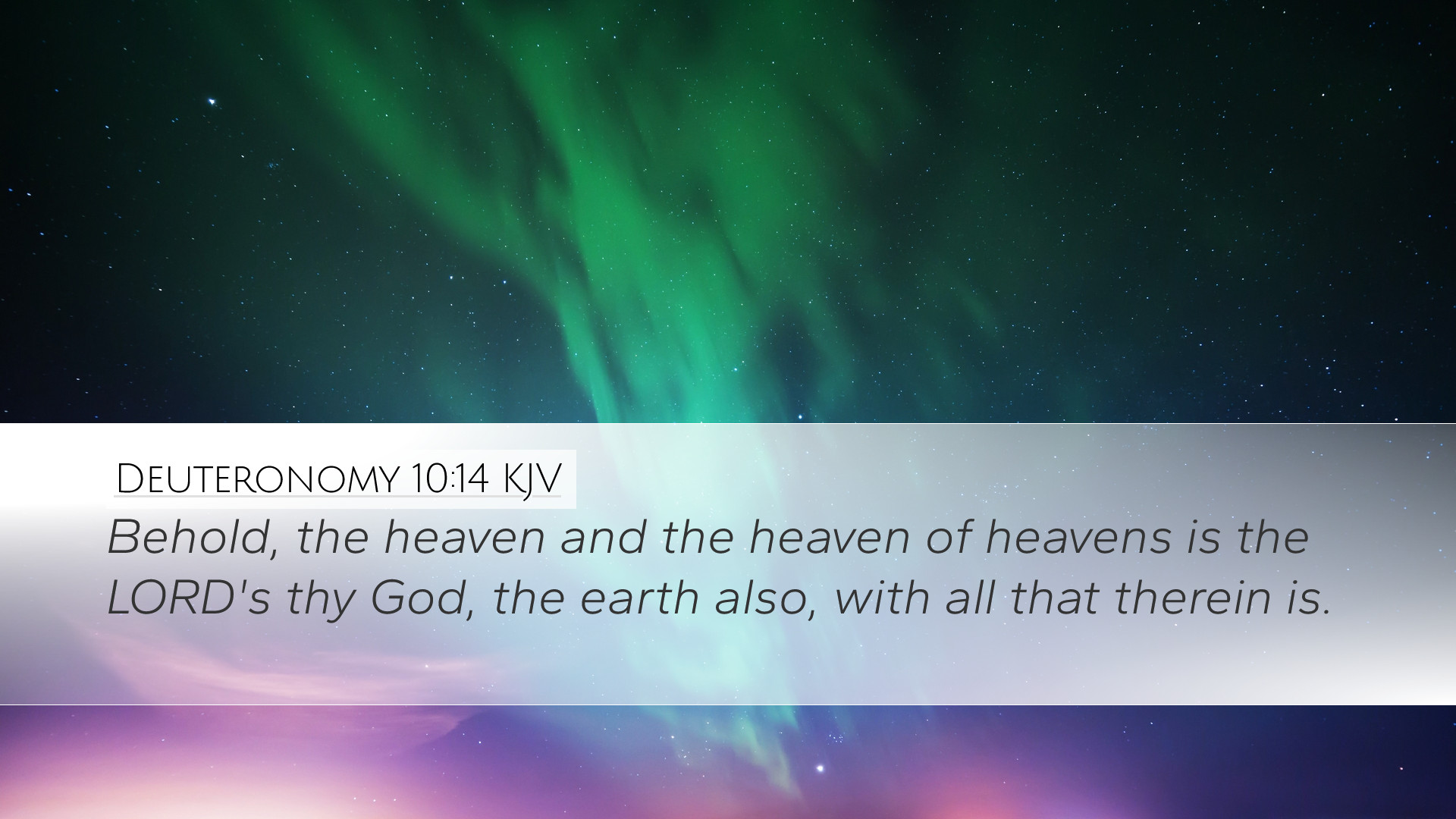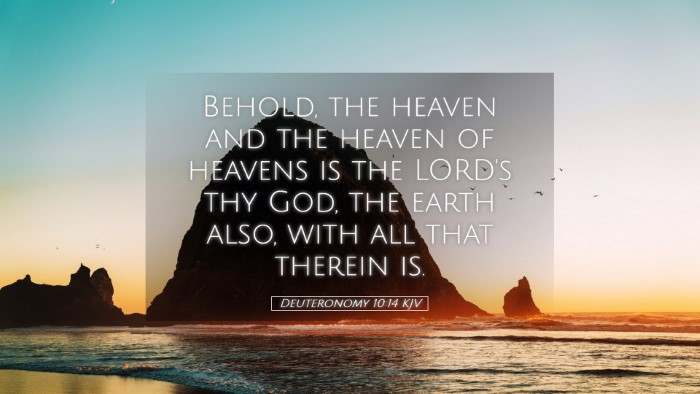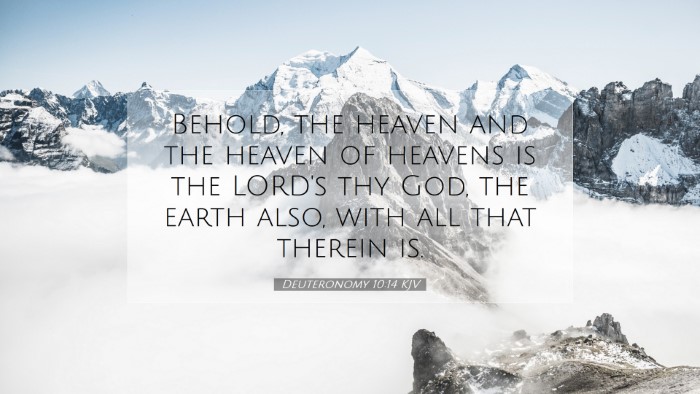Commentary on Deuteronomy 10:14
Bible Verse: "Behold, the heaven and the heaven of heavens is the Lord's thy God, the earth also, with all that therein is."
Introduction
This verse serves as a profound reminder of the sovereignty of God over all creation. In this commentary, we draw upon insights from respected public domain sources such as Matthew Henry, Albert Barnes, and Adam Clarke to unpack its meaning and significance for readers today.
Contextual Background
The Book of Deuteronomy contains Moses’ farewell speeches to the Israelites as they stand on the brink of entering the Promised Land. This chapter, in particular, emphasizes God's greatness and His claim over the entirety of creation. It provides a context for understanding God's expectations from His people.
The Sovereignty of God
As noted by Matthew Henry, this verse reflects God’s immense power and authority. The phrase "the heaven and the heaven of heavens" suggests not only the physical heavens but also the spiritual realm, signifying that everything and everyone is under God's dominion.
Albert Barnes elaborates by pointing out that the mention of "heavens" indicates the infinite nature of God’s presence and His unparalleled majesty. It underscores that God is not confined to a particular place but is transcendent over all creation.
The Earth and Its Contents
Continuing from the acknowledgment of God’s sovereignty over the heavens, the verse also asserts His lordship over the earth and everything in it. Adam Clarke interprets this as a call for humility among the Israelites, reminding them that all of creation belongs to God.
Moreover, this assertion serves to encourage believers to recognize their reliance on God as the Creator and Sustainer of all life. Matthew Henry further emphasizes the importance of living in a manner that acknowledges God's ownership and authority over their lives and their possessions.
Theological Implications
This verse carries significant theological weight, speaking to God’s relationship with creation and humanity’s responsibility. According to Albert Barnes, this acknowledgment entails a commitment to worship and serve the one true God who has dominion over all that exists.
Matthew Henry suggests that recognizing God's sovereignty should inspire admiration and gratitude within believers, leading them to a deeper sense of worship. It reinforces the understanding that all created order ultimately points back to the Creator.
Application for Believers
For pastors, students, and theologians, Deuteronomy 10:14 serves as a foundational reminder of God’s ultimate authority. Adam Clarke encourages believers to reflect on their own lives regarding how they hold their possessions, time, and talents in relation to God’s lordship.
- Worship: Acknowledging God’s sovereign ownership should lead to a lifestyle of worship, aiming to give glory to God in every aspect of life.
- Service: Understanding God as the creator motivates believers to serve Him faithfully, recognizing that everything we do is in His sight.
- Stewardship: Since God owns everything, believers are called to be good stewards of all God has entrusted to them, aligning their priorities with His purposes.
Conclusion
In summary, Deuteronomy 10:14 encapsulates a magnificent truth about God’s sovereignty over all creation. Through the insights of Matthew Henry, Albert Barnes, and Adam Clarke, we are reminded of our place as humble stewards in light of God’s greatness. As we bear witness to God’s dominion, may we commit ourselves to lives that reflect His glory and honor in all things.


